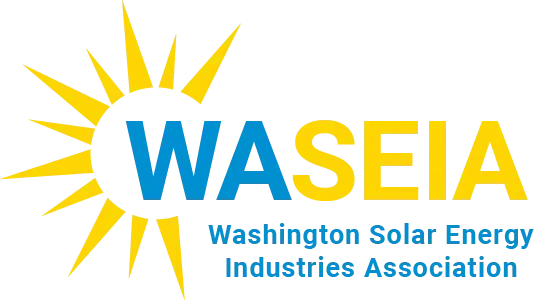
What Is I-2066?
This election season, Washington State voters have a This measure would repeal or prohibit certain laws and regulations that discourage natural gas use, and/or promote electrification, and require certain utilities and local governments to provide natural gas to eligible customers. This is a part of a broader spate of anti-climate initiatives backed by hedge fund manager Brian Heywood. He is also trying to repeal the Climate Commitment Act with I-2117.
What Would I-2066 Mean for Me?
I-2066 is a broad initiative that could bring significant consequences for Washington residents:
- The initiative could weaken energy efficiency programs and eliminate key rebates that help consumers afford energy-efficient appliances.
- Local governments, including cities and counties, would lose the ability to make energy decisions tailored to their communities’ specific needs.
- Existing laws promoting a transition to clean energy would be rolled back.
- It could undermine protections under the Clean Air Act, threatening public health by allowing more harmful air pollution.
How Would I-2066 Increase Energy Bills?
I-2066 could drive up energy costs by weakening efficiency standards that save consumers money and reduce strain on the energy grid during extreme weather. Additionally, the removal of building efficiency standards could result in higher energy bills for future homeowners and renters due to inefficient energy use in newly constructed buildings.
Why Is This Initiative on My Ballot?
I-2066 was placed on the ballot through a multi-million dollar effort funded by special interest groups, including fossil fuel corporations. These groups seek to delay the transition to cleaner energy sources, potentially increasing profits while families and businesses bear the financial burden of higher energy costs.
Is There a Natural Gas Ban?
No, there is no ban on natural gas. The claims made by the initiative’s supporters suggesting otherwise are misleading. Residents who want to use gas appliances can still do so, and no one is being forced to stop using gas. It would restrict the building of future natural gas infrastructure for utilities serving more than 500,000 gas customers.
How Would I-2066 Affect Public Health?
I-2066 could weaken critical air quality protections, increasing the risk of diseases like asthma, COPD, and cancer by allowing more harmful pollutants into the air.
What Would I-2066 Mean for Climate Change?
I-2066 would set back the state’s efforts to reduce carbon emissions and transition away from fossil fuels. It would repeal parts of existing laws aimed at building new structures that are more energy-efficient and have lower greenhouse gas emissions, keeping the state reliant on fossil fuels for decades.
The Details: I-2066 Would Dramatically Impact House Bill 1589
Puget Sound Energy, (PSE) Washington’s largest utility has issued a statement about the disinformation being spread about this bill that clearly states:
- HB 1589 does not include a ban on natural gas, and it does not change PSE’s obligation to serve natural gas to our customers.
- There is no rate increase associated with HB 1589. It’s a planning bill, and there will be three years of rulemaking and work before we submit an integrated system plan to our regulators. That will only be a plan—it will not include a request to increase rates.
- Nothing in the bill forces electrification. What it does is requires PSE to develop a scenario demonstrating the costs of electrification that will be part of the integrated system plan we submit to our regulators in 2027.
Initiative 2066 would remove a provision introduced by House Bill 1589, which was passed by the Washington State Legislature in 2024. That provision requires the Washington Utilities and Transportation Commission (WUTC) to evaluate alternatives to current and planned natural gas infrastructure projects, including achieving all cost-effective electrification of end uses currently served by natural gas. The assessment is part of broader efforts by the state to transition away from fossil fuels and promote cleaner energy alternatives.
By removing this requirement, I-2066 would essentially prevent the WUTC from prioritizing electrification over the maintenance or expansion of natural gas infrastructure, thus preserving natural gas as an energy option without mandatory assessments of alternative energy sources.
Sources:
https://ballotpedia.org/Washington_Initiative_2066,_Natural_Gas_Policies_Measure_(2024)



